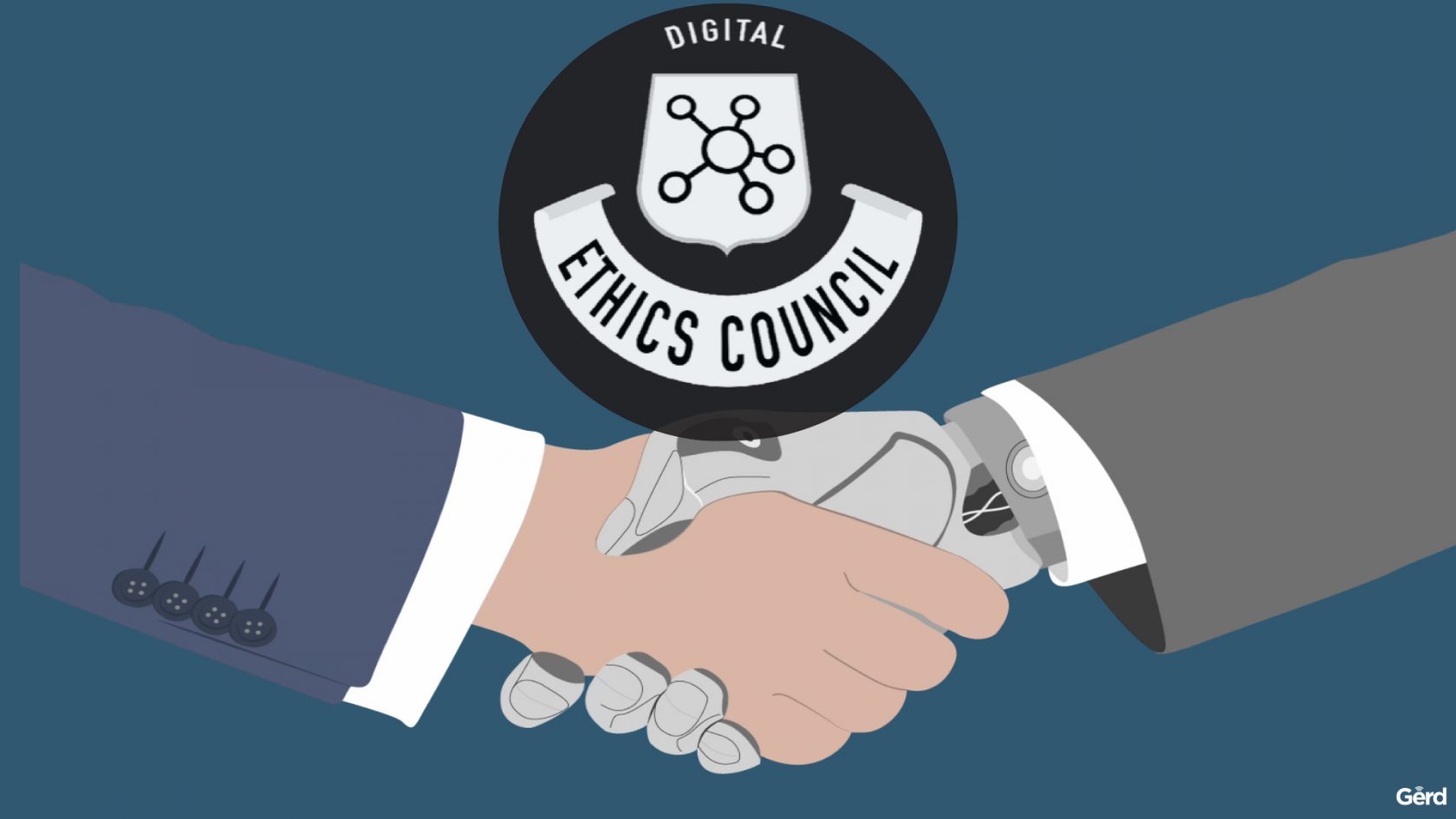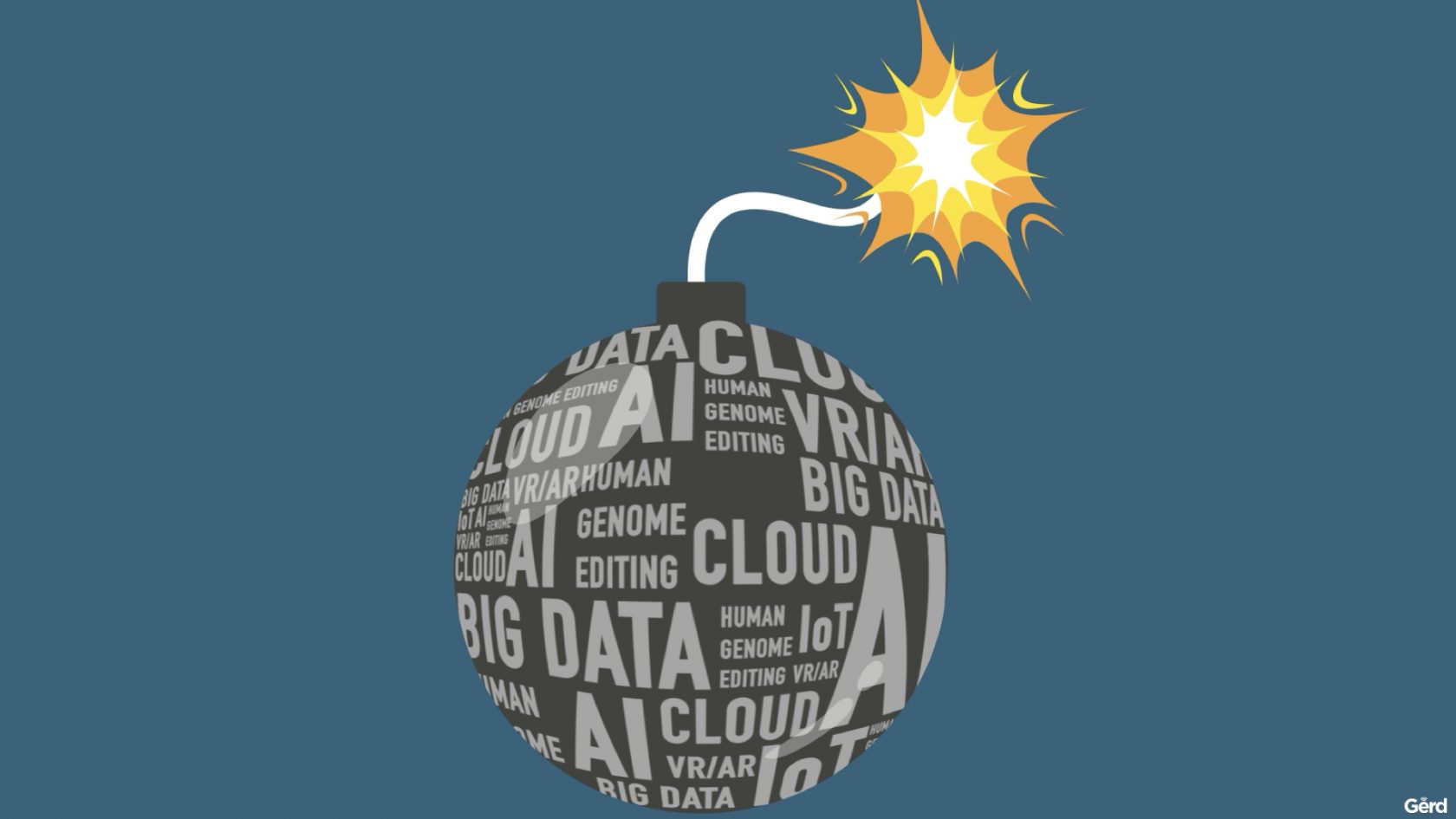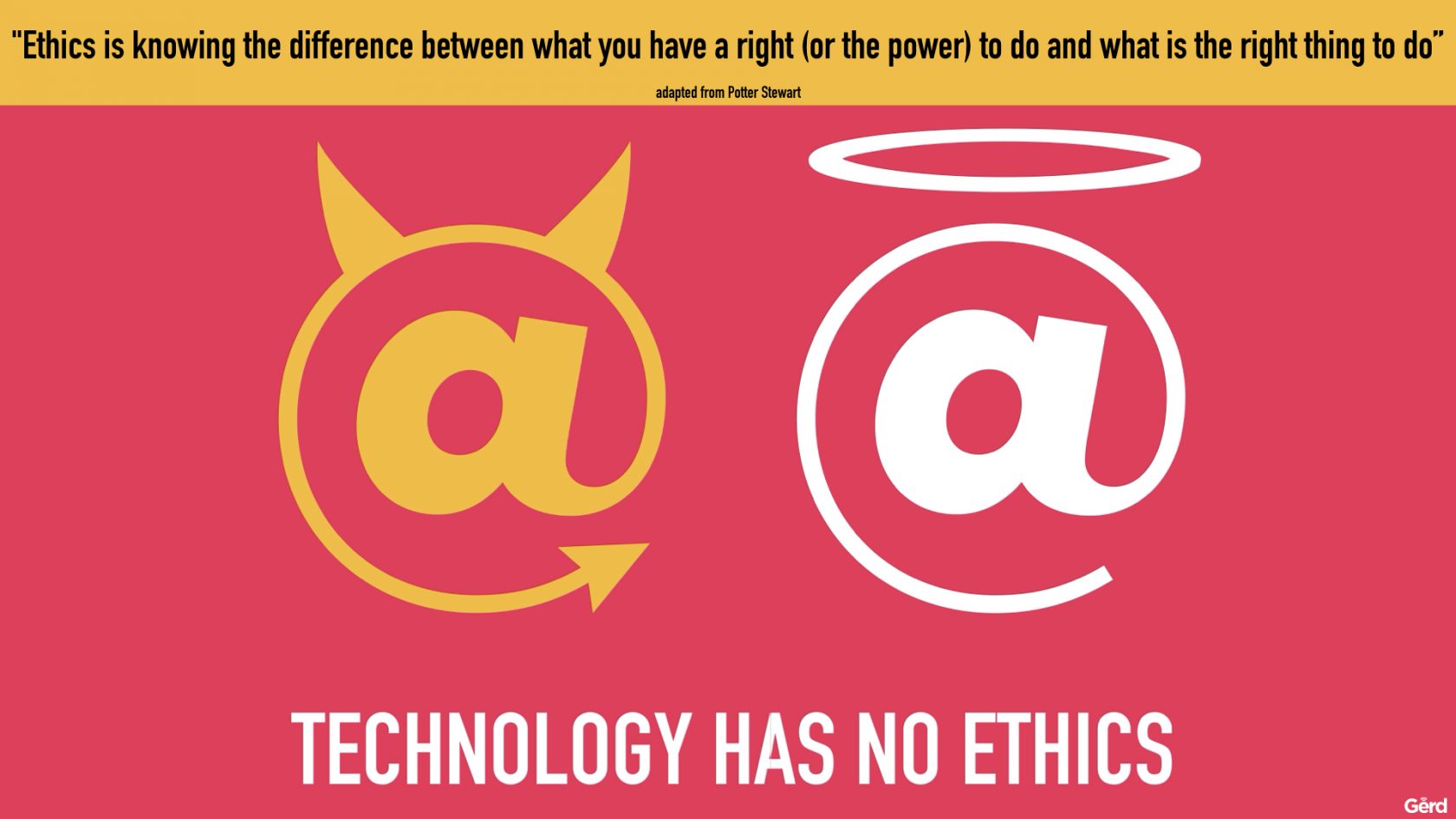“Technology can do great things, but it does not WANT to do great things – it does not want anything” says Apple's CEO Tim Cook (a quote I have often used in my talks). Technology is a tool not a purpose – see my ‘carpenter and the hammer example' (video).
“Both biotech and AI are dual-use technologies, meaning they can be wielded for both beneficial and malign purposes. That makes them far more difficult to control than nuclear weapons, especially since some of the most extreme risks — like, say, a dangerous virus leaking out of a lab — could be accidental, not purposeful.”
Via Axios Future
A recent keynote on digital ethics
While it is very hard to define a universal set of ethics or norms and every country has different rules around data privacy and surveillance, it has become clear that we need to find ways of putting collective digital privacy rights in place. The EU sis drafting an AI regulation in which rules would set limits around the use of artificial intelligence in a range of activities, in “an attempt to regulate an emerging technology before it becomes mainstream” according to The New York Times. As I wrote in chapter 2 of my book “Technology vs Humanity” “Technology has no ethics, and therefore its imminent entry into our most private lives and biological processes must be negotiated as a top civic and corporate priority”.
In this Tedx Talk back in 2014 (!), I point out the fact that “The power of technology had already surpassed the scope of our ethics”… That was back then but look at it now… I think technology is now on the verge of becoming unlimitedly powerful, especially after the Covid-19 crisis that served to accelerate their uses and applications of digital technologies in response. We are entering very an era in which it's no longer merely “data is the new oil” but ‘data is the new plutonium'.







